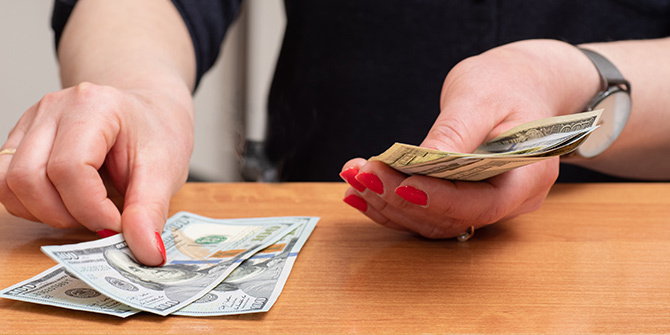
There are some habits you should definitely break. Then there are others — like saving money — that should be at the top of your to-do list. Here are a few good habits for saving money.
Tuck away emotions
Take the emotion out of your money. If you tend to make purchases to reward yourself after good news or bad news, you’re spending based on your emotions. And the seesaw of ups and downs will be clearly reflected in your account.
Shed the weight of debt
Many people find themselves weighed down by unmanageable debt, leaving little to add to savings. Turn that around by first, stepping back and finding out exactly how much you owe. Gather all your account statements and bills, and add up your outstanding debt. Include details like the current interest rate and balance for each debt.
Don't panic if your list is long. You now know where you are and this gives you the power to get where you want to go.
Next, prioritize your debts and develop a payment plan. It may be possible to consolidate some or all of your debt at a lower interest rate. A lower interest rate can help you pay off your debt more quickly and at less expense. Consider either paying off debt with the highest interest rate first, or starting with debts that are the easiest to pay down. Do some research, talk to a financial professional and make a plan that best fits your needs. Put away any savings for future use.
Avoid unnecessary fees
Start a habit of tracking your account balances to avoid overdraft fees. Sign up for alerts and notifications to help you monitor your accounts. If a balance gets too low or a withdrawal is made, or even if you’re about to overdraw funds, you’ll get a notification. This gives you time to take action and avoid fees. It’s also a good way to stay on top of your budget, so managing your money becomes smarter and easier than ever before.
Avoid opening credit cards on impulse
Signing up for credit cards you don’t need is never a good practice, even if you end up getting a store discount or other rewards for using the card. You may spend more just to get the discount or rewards points, so you’re not actually saving money. You may benefit from the discount or rewards upfront, but you will end up increasing your credit card balance and generating unnecessary interest.
If you choose to get a credit card, shop around for a low-interest card with no annual fee. Only use your credit card for purchases when you know you can pay in full when your statement comes.
As you incorporate better money-saving habits into your life, you’ll find that even small contributions add up over time. If you need help, visit your local branch for no-cost Financial Counseling.
The advice provided is for informational purposes only.